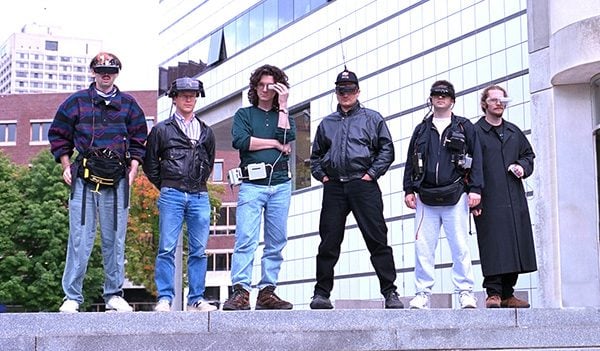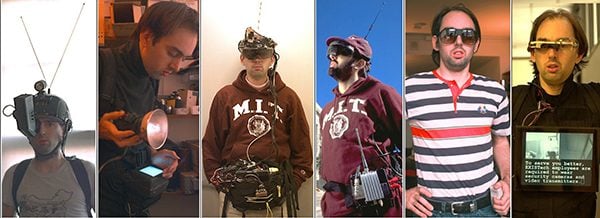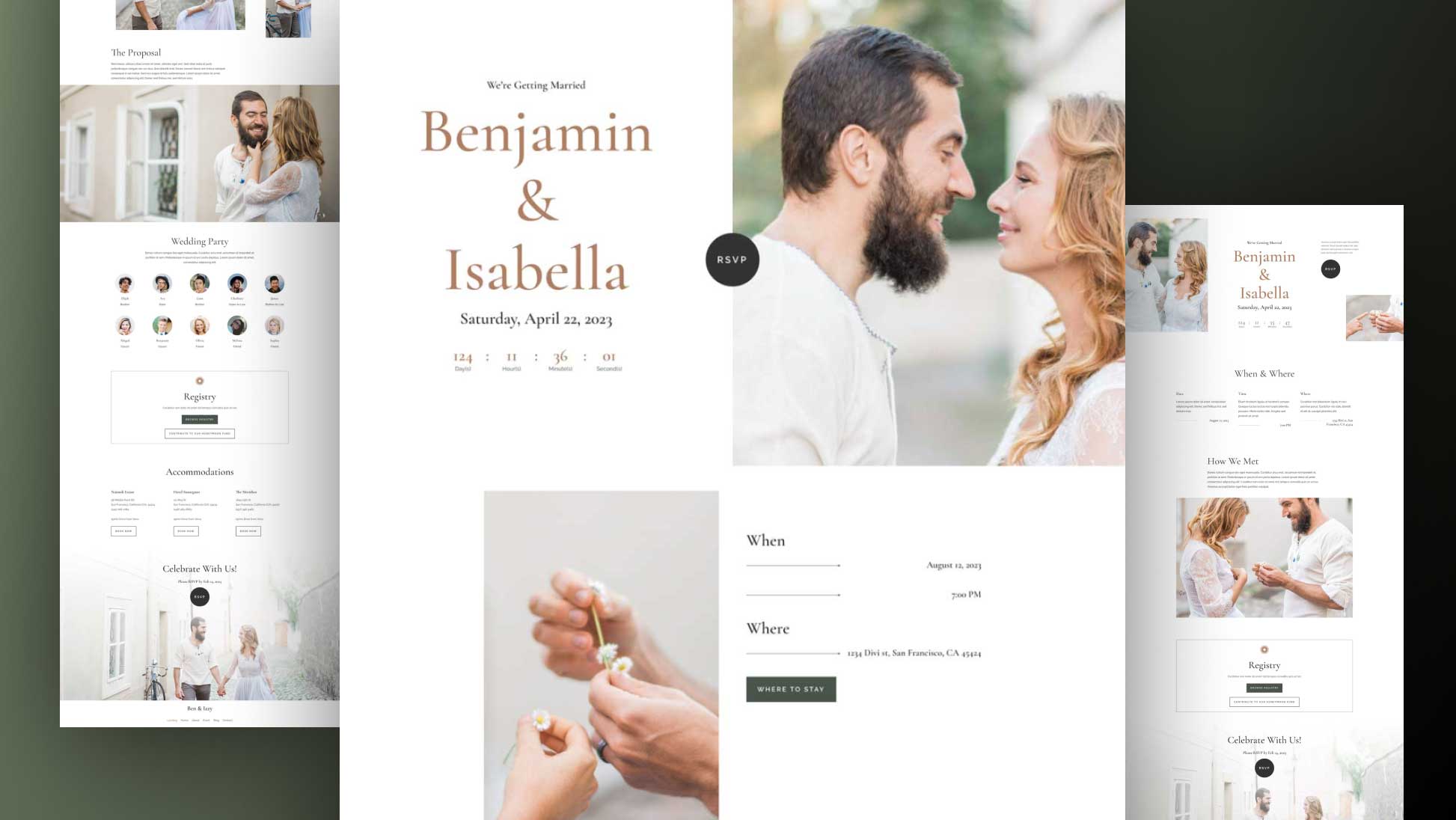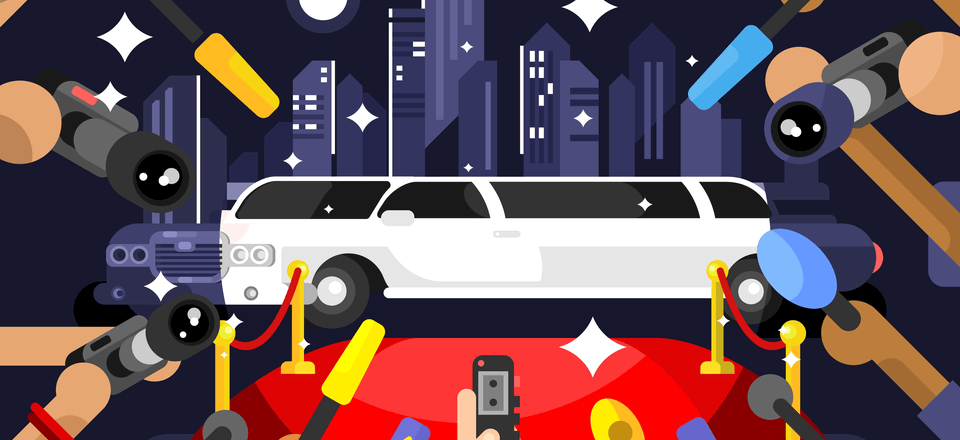I have to admit, writing a post that claims to make accurate predictions about what anything, let alone something as rapidly innovative as web design, will be like in 20 years is probably impossible. Except, perhaps, if I limit myself to broad predictions in line with current breakthroughs that have yet to take hold on a large scale. Which might sound like cheating, but it’s actually following a pretty well established pattern of technological innovation and adoption.
In general, new technological breakthroughs take about 20-30 years before they are broadly adopted as the new norm. Ironically it is at that point, 20-30 years later that they become widely know as “the next big thing” even though they’ve been around for quite some time in limited circles consisting of inventors, theorists, and advanced research labs like the MIT Media Lab or DARPA (Defense Advanced Research Projects Agency). A few good examples include: the internet itself, email, and wearable computers.
The Internet began as the ARPANET in 1969 but it wasn’t until the 1990’s(a little over 20 years later) that it became the big new thing that every business and individual was learning about and connecting to.
Similarly, the first hosted email service was MIT’s CTSS MAIL in 1965. It wasn’t until the early 1990’s that email services for the general public began to pop up and become the new standard of business and personal communication.
And finally we have wearable computers. These began with Dr. Steve Mann who was building wearable computers in the 80’s (in high school), joined the MIT Media Lab in 1991, and with new help and resources continued building the discipline until it has begun to penetrate the broader popular market with products like Google Glass and the Apple iWatch, among many others to come.

MIT cyborgs circa early to mid 1990’s

Dr. Steve Mann progression 1980-2000 (“Wearcompevolution2” by AngelineStewart – Own work. Licensed under CC BY-SA 3.0 via Wikimedia Common)
As you can see from the images above, there was a long process of iteration and refinement in wearable computers before we got to where we are today. Design of course is a huge part of this process, but in a purely aesthetic sense is not a top priority until the technology itself has proven itself.
To give a WordPress example: we’ve all seen plugins that start out functioning fine but look ugly that over time get updates to their design that make them both highly functional and quite beautiful. In this way, design is even farther behind the curve than the technology we’re adopting some 20-30 years after it was invented.
This is why in the section below, before we get into the concepts and ideas that might dominate web design in 20 years, I’d like to explore the intimate connection between web design and its dependent technology–computers.
Understanding the Intimate Connection Between Web Design and Computing Itself
Right now there are a few dominate trends in web design: responsive design, single page design, card design, and material design. These trends are all responses to the technology we use to interact with our content such as desktop and laptop personal computers, phones, and tablets. All of which use glass displays that mimic physical documents in a digital manner and which, on a fundamental level, have not significantly changed for decades.
So what happens when computing as we know it changes dramatically, perhaps even ditching the screen interface altogether? We might be close to finding out. According to many computer scientists and technology enthusiasts we are rapidly entering The Age of Context.
The Future of Computing: Context
According to the recent book by Robert Scoble and Shel Israel mentioned above, The Age of Context (2013), there are “five converging forces [in computing] that promise to change virtually every aspect of our lives.” They are mobile, social media, data, sensors, and location-based services. The point at which they converge and give birth to a new age of computing is, you guessed it, context.
But what exactly does that mean?
Contextual computing means that our technology understands us, our needs, and our environment to such a degree that it can seamlessly integrate into our lives in previously unimaginable ways.
Ovens that recognize the food that is placed inside them, know how the person putting the food in it like that particular dish cooked, and then do it automatically. Fridges that recognize when you are almost out of staple items and orders them for you. Virtual Assistants that actually learn the ropes of your business just like a real person might in order to help you respond to emails, invoice clients, and much more.
To one degree or another, all of the things I just mentioned are actually possible right now. Contextual computing on a commercial level is already taking place, but its not very wide-spread just yet. In the next few years I would expect that to change.
What We’re Already Seeing Today
When it comes to web design, there is already one standout example of how contextual computing is being put to use. A new website building service called The Grid offers its users websites built using artificial intelligence that alters your design every time you add content to make sure it is optimized for your specified purpose; such as art portfolio, lead gathering, sales, etc.
In my opinion the logical development path for this type of technology would be to increasingly incorporate knowledge of specific consumers as well–not just the preferences of the site owner. If one person’s web behavior shows a 90% conversion rate in response to a certain type of web design then the site will appear one way to them but in a different, yet equally optimized way, to another visitor so that every single viewer sees exactly what they need to see in order to illicit the desired response.
But what happens when, as I mentioned above, we do away with screens altogether? What happens when “wearables” stop being devices and simply become parts (or at the very least extensions) of our bodies that interact directly with our brains? That’s what the founder of MIT Media Labs Nicholas Negroponte thinks might happen and he’s got a pretty good track record with these kinds of predictions.
What Will Be Possible 20 Years From Now?
In the video above, Negroponte proposes that in the relatively near future (20-30 years from now) we may be interacting with or even absorbing information in fundamentally different ways than we do today. Such as nanobots in the form of a pill that can place data directly into our brains via the bloodstream.
In this scenario, or any biotech approach, computers as we know them are no longer in the picture. There is no need for a web page design (or designer) because there are no web pages. Instead of networking computers, we may be networking humans.
Or at least this is the kind of thing that will likely be possible. There is a massive variety of outside factors could influence the development (or lack thereof) of this type of technology. We might see laws passed that prohibit this kind of advancement. We might see something completely novel and unexpected take us in a different direction entirely. We might decide as a culture that the economy is best served by postponing the commercial use of certain tech. Or wide variety of other things.
All of that said though, I wouldn’t count on web pages as we know them today being around in 20 years. Whether the content we view is designing itself specifically for us or we are simply uploading new information to our brains matrix style, web pages (and therefore web design as we know it today) has an impending expiration date.
Where Does This Leave Web Designers in the WordPress Community?
I don’t see any other way of putting it, so I’ll just say it. If you’re a web designer you’ll probably have to get another job. But don’t worry, so will content writers (like me) and a whole slew of other people. As conscious computing and contextual computing get more and more advanced, it will drastically change the way we create and interact with content/data forever.
WordPress itself will have to change. If it exists at all in 20 years it will be nothing like it is today. If the current direction of WordPress is to morph into an application platform or an operating system for the web, then 20 years from now will take us quite a few steps beyond either of those.
WordPress, in whatever form it takes (or whatever takes its place), might be an open source tool for displaying contextualized content in ways we haven’t even begun to think of yet. As someone who makes a living using and writing about WordPress, that’s kind of scary to think about. But exciting too! After all, we’re not all going to be plopped down in the future with only the knowledge and experience we have now. Instead we’ll be along for the ride, adjusting to and contributing to innovation as it happens, helping to shape the future just as much as it will shape us.
Article Thumbnail via BimXD // shutterstock.com









Good read.. however I think everyone is ahead of themselves again tech wise. I know everyone thinks we will be using some high tech wearable computers but honestly I don’t ever see it happening.
You have to remember the masses are what drive popular tech. So if the price isn’t right than it wont ever come to be a standard. I still think we will be using ultra slim.lightweight notebooks/laptops, and almost palmsized 2 in 1 desktops.
I also agree with smart/responsive content that works like AdSense in a way…but at the same time someone hasto create that content not everything can be predetermined within that several second windows.
If anything like Stanford stated at their web conference this year that were more liely to see a mass commercialization of the web vs continued individual domains like now but honestly no one really knows… at any time a world wide event good/bad could change everything in an instant.
The thought of web designers/developers, content writers and all the other members of website construction being obsolete 20 to 30 years from now is quite scary. Scary in a sense that we’re not yet in the future and we don’t know what’s going to happen next. Just like what’s the in thing now, websites. It’s actually websites and the internet who killed print media.
But since we are humans, we are able to think, make critical decisions, react according to the circumstances, innovate; I am sure that we’ll absorb whatever it is that will happen or come up in the future. We can function more than the cyborgs can do, so there’s nothing to be scared about in terms of technological innovation and having a job.
But, in terms of drinking tablets that will program humans to do what machines does is a different story. That’s something we should not push to happen because everything won’t be authentic but synthetic and we’re not created that way.
I remember reading an article by Nathan a few years ago. The subject then was also: the future of web design. To make a long story short; his article was right on – and a couple of years ahead of its time. I’m not saying he is Nostradamus but definitely worth taking heed.
My question at this point is what would be the best direction to take our learning efforts? Will the basics of html, css and javascript still play a role in the future? If not, which curve should we follow?
Web Developers and Designer’s may be out of job, but businesses will still need us to configure and manage all of these new platforms. Programming, Configuring and Management will be the future.
Which languages would you say will manage these new platforms? For a person just starting out; what would be your opinion for a career path.
I am wondering if we are not missing the boat. There is too much emphasis on social media. Eventually, it will get old because many people don’t really want to know when you’re brushing your teeth or eating yoghurt. Someday, someone will come up with a new idea such as relevant data – fewer but more useful information rather than irrelevant contextual and recycled data.
I think what you’re describing is contextual computing. It’s all about brining you only the information you want, when you want it. Or, acting on the right information at the right time. The firehose of information we now face as corporations and individuals is what big data aims to solve. That solution is what contextual computing capitalizes on.
We are all doomed!
Some interesting points here. I sometimes think back to how things were in web design and development just 5 years ago, compared to how much has changed now, and how much will still change.
Great article, thanks! 😀
Ha ha, guys relax. I think the story is spot on, but the timeline is wrong. It will take a long time to get to this point and believe me, I am a science fiction freak. Go watch the grid’s own website. I am really not impressed. If it does not hold for themselves, will it work for the clients? 80% of the world is still working with old terrible sites after the last 20 years. Clients will ALWAYS need help in some form. it is not how fast we develop technology, but how fast consumers adapt, and that always takes a loooong time.
Good point. However, the rate at which new technology is being adopted is also on the rise. This means that as time moves forward and the average consumer becomes better at adapting to change, the overall rate of adoption will begin to catch up with the rate of innovation.
But, as you said, there will almost always be a gap that some people can find a niche in.
Wow!!! it’s great to know about the future of web design. Your post will aware those who belongs to this business and help them to take the decisions about their future life.
Technology is changing fast. But what does not change as fast is human nature. The individual human ego has needs technology cannot supply.
I would rather read an article written by a human being like Nathan Weller than a robot. Could I tell the difference? Of course I could! Unless I quit using my brain altogether and artificial intelligence tells me what to think. No thanks.
There is no soul in technology, it’s only functional. There is more to life than a smartphone or smartfridge. Soon we will have booksmart software – is the book smart or are you smarter because you read the book written by someone with the knowledge of their experience.
I don’t think web hosting, designing and writing will change that much in twenty years… you need human beings to manage the complex problems web hosting companies and social media are experiencing today. The problems are getting worse not better. Let’s deal with today rather than 20 years from now.
Thanks for an interesting read Nathan!
Just what I needed today. Another kick in the groin.
I wouldn’t be too bummed out about it. Without previously disruptive technology we wouldn’t have WordPress or Web Design as careers to begin with. I think the key is simply to embrace change as a constant and learn fundamental principles that can help you stay nimble.
Thegrid still does the same thing of what could be done with a lifetime membership at elegant themes. 🙂
But The Grid does it automatically without any design skill, resources, or time required. At the moment, I would still prefer my Elegant Themes lifetime membership too. However, I can’t say that as time goes by I wouldn’t want to tool like The Grid to (at the very least) be my virtual design assistant.
I always like the research you’re doing on your articles, Nathan. Sometimes, the topic is just not for me, but I can still tell that a lot of effort went into them.
This time, it’s a topic that I find intriguing and as always, one can tell you thought about it long and researched it. The final product is very nice, I think it’s the article I like the most that you have written. Well done and keep it up! 🙂
Thanks Oliver 🙂
You have to let it all go, Neo. Fear, doubt, and disbelief. Free your mind. (But I still want one of those TRON light cycles for my grid.)
I don’t think we’ll be out of a job I’ve actually been talking to companies to move this direction. As much as people say there will be no more work out there the complexities of the programming involved in these systems are going to increase the needs of programmers in the future. And drag and drops still require designers trust me I couldn’t do much without my designer. But code isn’t going to go anywhere. Just means coders have to step up and learn newer technologies is all.
Thanks for a great article! Very thought provoking as I imagine what’s coming. I love the web and all the technology changes, at 61 am more interested in learning and changing now than ever before…the future is exciting!
I heard about The Grid in 2014 and was so excited about it I paid up to be a foundation supporter. I’m not a web designer but have been a consultant for over 20 years.
Started my first web based biz in 1997…and am launching a brand new one soon. An academy.
Keep up the good work!
Cheers,
Lyn
SYDNEY
If this becomes true or close to it…”Such as nanobots in the form of a pill that can place data directly into our brains via the bloodstream”… I wonder about the impact of this on our educational system. One thing is that psychomotor skills may become more important in the workplace. Educational content providers will more more important, but the number of them will decrease because these pills can be mass produced and injected/ingested across large populations. Will people be smarter? Will there be societal haves and have nots? Will the education gap be narrowed/increased?
So much to think about.
Lots to think about indeed.
Its important to keep up with the times, but i think people will always need designers, I think that’s why it’s a good idea to offer a wide range of design skills. Also it’s worth bearing in mind and i’m not sure if this is the best analogy, but a lot of people could paint their own front room but they would rather pay someone else to do it.
I think designers will be needed to discover and establish new interfaces. However, once an interface has been more or less fully adopted and mapped out–such as web pages as a way of displaying and interacting with information on the internet–then programming the desired outcome becomes more and more likely.
I’ve been considering for some time now that my days as a web designer are numbered. Already today we have more and more services that allow anyone to create their own webpages. Sure those services are limited and often lacking in the kind if design they offer but they are getting better every year. The Grid which you mentioned is especially intriguing and I think that is likely where things are going, information is submitted to an AI for presentation online and the AI determines how to present it dynamically based on context and many other factors. This where it’s going if you ask me. Standard web sites already seem clunky and out of date to me.
Very interesting… I am myself working in IT and we have to adapt continually, so changing of job and learning new skills is something i am used to. Besides… Learning all our Life is good for our brain and health, so i am eager to see from my own eyes thé future you described
This the attitude I’ve adopted too. As a writer, I’m aware of programs that even now can accurately and stylistically do what I do–to an extent. It won’t be long before those programs are so good that most readers will not be able to tell the difference. Which to me means that I should learn base principles that can be applied to building such programs or using them in novel/valuable ways. That’s why I’m such a huge proponent of naratology (story theory) because it teaches you how humans communicate. Knowing those principles will continue to be valuable even after writing blog posts no longer is.
Picky, I know, but AI “might” catch this . . .
“illicit” = not legal
“elicit” = to draw out
I see in the future more and more websites using the DIVI and Visual Composer plugin to create WordPress based websites.
In 20 years you will have different problems and tasks.. and we will be working as usual.. no worries 🙂
I’m a lifetime member here, Elegant Themes.
I’m not going anywhere.
Just saying.. 😛
Interesting article..
Cheers
Ha! Good comment Noz, made me giggle 🙂
Great article. As an early adopter and someone who loves change, I can’t wait for all these changes
Correction: In the opening paragraph, you mentioned Apple’s wearable device, it’s called the Apple Watch, not iWatch.
Quote for Nicholas Negroponte! We will have plugin directly in our brains.
you mean to say designer especially web designers will be jobless after 20 years ? any ideas what to profession to look up, I will start working on that from right now 😀
Web developers will be jobless, as well, because everything on the web will be automated. Building websites is already becoming drag and drop. No need to have designers and developers anymore.
Mmm, thought I have commented here already… Aaah, perhaps waiting for moderation or “got moderated”…
Will check back later and then I’ll type it again, but without the link maybe???
Design principles will remain and be applied to new interfaces. I’d focus on learning the base principles of whatever you do so that it is transferable from medium to medium.
I agree we really get fixated on one area of focus and don’t see the other related areas that can help us years down the road.